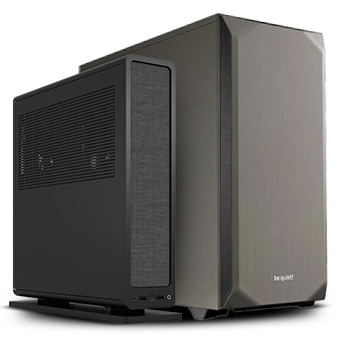Is 32GB of RAM overkill?
Posted on 9:44am, Wednesday 4th January, 2023
When building or purchasing a new computer, one of the decisions you'll need to make is how much memory, or RAM, to include. RAM is a computer memory used to temporarily store your computer's active use or processing data. The more RAM you have, the more data your computer can access quickly, improving its overall performance.
32GB of RAM is considered high and is generally overkill for most users. For most everyday use and basic tasks such as web browsing, email, and basic office work, 8GB of RAM is more than enough. Even for gaming or video editing, 16GB is typically sufficient.
However, there are specific use cases where 32GB of RAM might be beneficial. For example, if you are running multiple demanding programs simultaneously or working with large files or data sets, having 32GB of RAM can help ensure that your computer can handle the workload without slowing down. Additionally, if you're into content creation, 3D modelling, or video editing, a high amount of RAM can help you with better performance for those specific tasks.

What Would You Use 32GB of RAM For?
There are several specific use cases where having 32GB of RAM would be beneficial, particularly when it comes to video editing, Photoshop, and Adobe After Effects.
Video Editing
Video editing is a resource-intensive task that can benefit greatly from having a large amount of RAM. When editing video, your computer needs to be able to access and manipulate large amounts of data quickly, which can be challenging with less RAM. With 32 GB of RAM, your computer can more easily handle multiple high-resolution video tracks and large video files, allowing for smoother playback and more efficient rendering. This amount of RAM can also help you work with more complex visual effects, color correction, and audio syncing.
Photoshop
Photoshop is another resource-intensive program that can benefit from a bigger RAM. Large image files and working with many layers can slow down your computer with less RAM. With 32GB of RAM, you'll be able to work with larger image files and more layers, making your workflow more efficient. Additionally, high-amount RAM can speed up color correction, retouching, and compositing operations.
Adobe After Effects
Similarly, Adobe After Effects is a program that can benefit from a large amount of RAM, especially when working with 3D animations and complex visual effects. With 32GB of RAM, you'll be able to work with larger and more complex compositions, making your workflow more efficient and allowing you to create more advanced effects.
Do I need 32GB of RAM for Gaming?
Whether or not gamers need 32GB RAM depends on the types of games they play and the settings they run them at.
Generally, 8GB of RAM is enough for most modern games at 1080p and 60 FPS, which is considered the standard for gaming. However, if you play more demanding games or if you play at higher resolutions, such as 4K, or with higher frame rates, 16GB of RAM can be beneficial.
As for 32GB of RAM, it can be considered overkill for gaming alone. However, if you are also running other resource-intensive programs alongside your games, such as streaming or video editing software, having that much RAM can help ensure that your computer can handle the workload without slowing down.
Suppose you're into high-end PC gaming or running games with many mods. In that case, 32GB of RAM can allow you to run those games at higher settings, and with many mods that can improve your gaming experience, you may consider 32GB of RAM.
If you play most modern games at 1080p and 60 FPS, 8GB of RAM is generally enough. However, 16GB of RAM can be beneficial if you play more demanding games or at higher resolutions or frame rates. 32GB of RAM can be considered overkill for gaming alone, but it can help run other resource-intensive programs alongside your games or for high-end PC gaming.
What Does RAM Do To Gaming?
RAM plays a crucial role in gaming, as it temporarily stores data that your computer is actively using or processing. The more RAM you have, the more data your computer can access quickly, improving its overall performance.
While playing a game, your computer constantly loads and processes data, such as textures, models, audio, etc. This data is stored in your computer's RAM, accessed by your CPU and GPU to render the game on your screen. If your computer doesn't have enough RAM, it will struggle to access the data it needs, leading to stuttering, lag, and dropped frames.
More RAM can help prevent these issues by allowing your computer to quickly access the data it needs. Additionally, having more RAM can help improve the game's overall quality. For example, with more RAM, you can run games at higher settings, such as higher resolutions or more complex visuals, without compromising performance.
What amount of RAM is good for gaming?
The amount of RAM that's good for gaming depends on the types of games you play and the settings you run them at.
In general, 8GB of RAM is considered a good amount for most modern games at 1080p and 60 FPS, which is considered the standard for gaming. This amount of RAM will allow you to run most games at their recommended settings without any issues. However, some demanding games may require more than 8GB to run at their highest settings.
For more demanding games or for running games at higher resolutions, such as 4K, or higher frame rates, 16GB of RAM is recommended. This will allow your computer to handle more complex game environments, more characters, and more objects in a scene. It will also give you more headroom for multitasking, like running web browsers, streaming software, and other background processes, allowing for a fully optimized setup.
Some recent AAA titles or games with huge numbers of mods might require even more than 16GB for smooth gameplay.
8GB RAM - Advantages & Disadvantages
Advantages:
- Cost-effective: 8GB of RAM is typically more affordable than 16GB or 32GB, making it a more cost-effective option for many users.
- Sufficient for most tasks: For most everyday use such as web browsing, email, and basic office work, 8 GB of RAM is more than enough. It's also enough for gaming at 1080p resolution and 60 FPS.
- Easy to upgrade: If 8GB of RAM is not enough for your needs, it's relatively easy to upgrade to more memory in the future.
Disadvantages:
- Limited for more demanding tasks: For more demanding tasks such as video editing, 3D rendering, or running multiple demanding programs simultaneously, 8GB of RAM can become a bottleneck and slow down your computer.
- Limited for future-proofing: With the advancement in technology and software, some new demanding games and applications may require more than 8GB of RAM in the future.
- Limited for multitasking: Running multiple demanding applications or tasks simultaneously can be challenging with 8GB of RAM and lead to slower performance and frequent swapping between RAM and hard drive.
16GB RAM - Advantages & Disadvantages
Advantages:
- Better performance for demanding tasks: With 16GB of RAM, you'll have more memory available to handle demanding tasks such as video editing, 3D rendering, and running multiple demanding programs simultaneously, 16GB is considered the sweet spot for most users.
- Future-proofing: 16GB of RAM is more than enough for most of the current tasks and applications and provides some headroom for future-proofing.
- Better multitasking: With more RAM, you'll be able to run multiple demanding applications or tasks simultaneously without slowing down your computer, which can improve your productivity.
Disadvantages:
- Higher cost: 16GB of RAM is typically more expensive than 8 GB, which can disadvantage some users.
- Overkill for basic tasks: If you only use your computer for basic tasks such as web browsing, email, and basic office work, 16GB of RAM may be overkill and not necessary.
- It may not be the best option for budget-minded users: 16GB of RAM can be a good option for most users, but it may not be the best option for users looking to build a budget-friendly system.
32GB RAM - Advantages & Disadvantages
Advantages:
- Extremely high performance for demanding tasks: With 32GB of RAM, you'll have a huge amount of memory available to handle extremely demanding tasks such as 3D animation, running multiple virtual machines, heavy video editing, and complex data analysis.
- Maximum future-proofing: 32GB of RAM is the current maximum amount of RAM most motherboards and Operating systems can handle, meaning you'll be able to run almost all current and future applications without any issues.
- Extremely good multitasking: With 32GB of RAM, you'll run many demanding applications or tasks simultaneously without slowing down your computer, which can improve your productivity significantly.
Disadvantages:
- Extremely high cost: 32GB of RAM is typically much more expensive than 8GB or 16GB, which can be a disadvantage for many users.
- Overkill for most tasks: If you only use your computer for basic tasks such as web browsing, email, and basic office work, 32GB of RAM may be overkill and unnecessary.
- It may not be necessary for budget-minded users: 32GB of RAM can be a good option for power users or professionals, but it may not be necessary for budget-minded users looking to build an affordable system.
Can 32GB RAM cause any problems with your computer or game performance?
Having 32GB of RAM shouldn't cause problems with your computer or game performance. It can help to improve performance for demanding tasks and workflows, as well as provide maximum future-proofing.
However, there are some rare cases where having 32GB of RAM could cause problems. For example, if your computer's motherboard or operating system is not designed to handle more than 16GB of RAM, you might experience stability issues or errors. Before upgrading, you should check if the system is compatible with 32 GB RAM.
Additionally, if your computer cannot take full advantage of the additional memory, it could result in lower performance than expected. This could happen when you have an older system with a slow CPU, a weak GPU, or even an outdated Operating system.
It's also worth noting that having 32GB of RAM does not guarantee perfect performance. It still heavily depends on other hardware of your system. A powerful CPU, Graphics card, and a fast storage drive would be necessary to get the most out of that much RAM.
Are there any other ways to improve your gaming experience without spending a lot of money on hardware?
There are several ways to improve your gaming experience without spending much money on hardware. Here are a few:
- Optimize your settings: Many games come with various graphical and performance settings. Lowering the settings can improve performance, especially on older or less powerful systems.
- Update your drivers: Make sure you have the latest drivers for your graphics card and your other components. Up-to-date drivers can improve performance and fix bugs.
- Overclocking: Overclocking runs a computer component at a higher clock speed than it was designed for. This can give you a small performance boost, but it's not recommended for users unfamiliar with the process.
- Clean up your system: Over time, your computer may accumulate unnecessary files and programs that can slow it down. Regularly cleaning up your system can improve performance.
- Close background applications: Running multiple applications in the background can slow down your computer and close any unnecessary applications to improve performance.
- Game optimization: Many game developers release updates and patches that optimize game performance. Make sure you have the latest version of the game, and install the updates when they become available
In conclusion, whether or not 32GB of RAM is overkill for you depends on your specific needs and the types of tasks, you'll be using your computer for.






